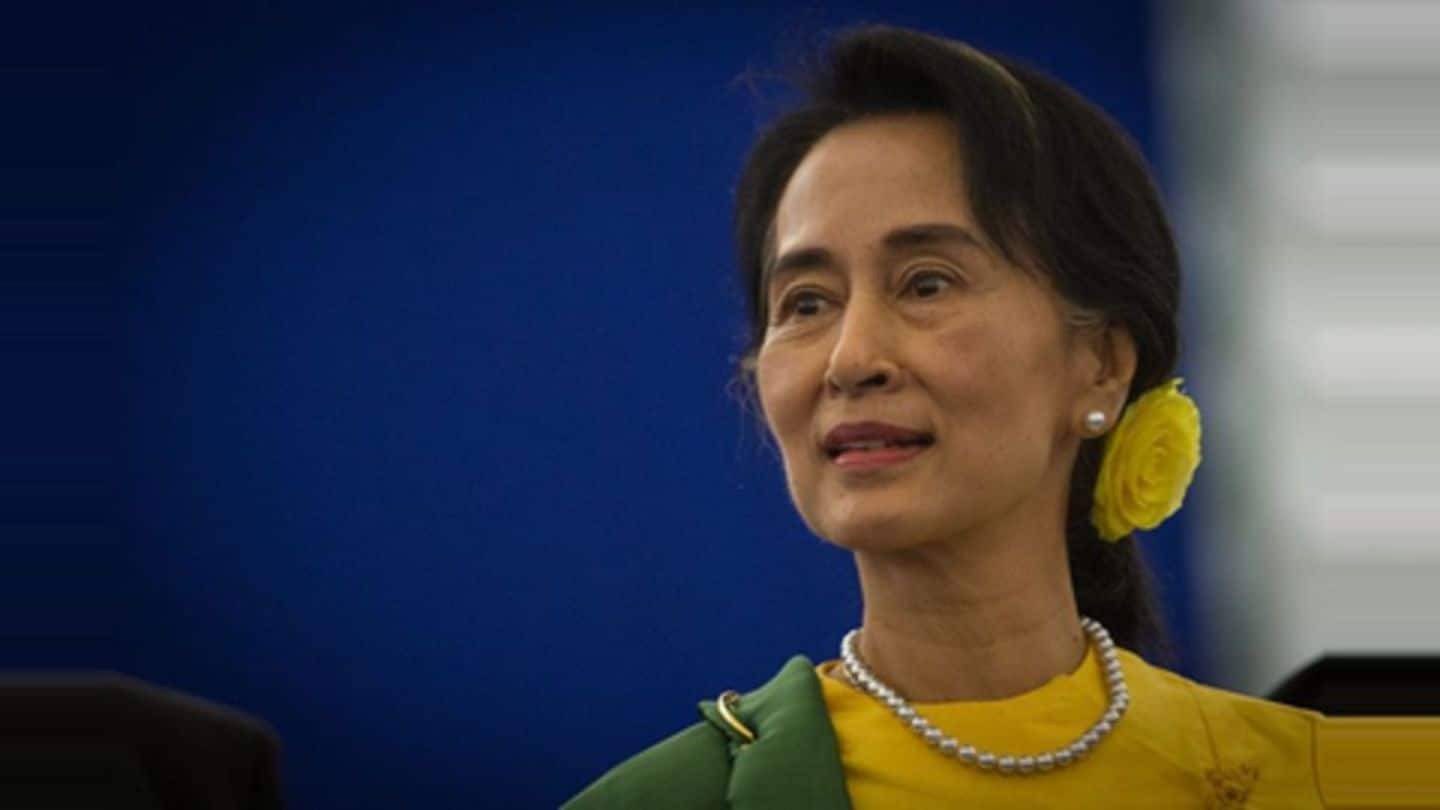
Rohingya crisis: Suu Kyi's speech draws international condemnation
What's the story
Amid rampant violence against Rohingyas in the Rakhine state, Myanmar's de facto leader Aung San Suu Kyi is under increasing international pressure to act.
In a recent speech, she condemned rights abuses while staying silent on the Burmese Army's role in the alleged ethnic cleansing.
The speech was widely condemned by world leaders and international organizations.
How did the world respond? Here's more.
Who are Rohingyas?
Rohingyas believed to be world's most persecuted minority
The Rohingyas are an ethnic Muslim group who constitute around one million of Myanmar's predominantly Buddhist 50 million population.
They speak a Bengali dialect, mainly reside in the country's impoverished northern Rakhine state.
Myanmar views them as illegal Bangladeshi immigrants and doesn't officially recognize them as its citizens, rendering them stateless.
The Rohingyas have allegedly been subjected to human rights abuses by Myanmar.
Speech
What did Suu Kyi say?
Suu Kyi said both she and her government "condemn all human rights violations and unlawful violence."
She didn't address the allegations of abuse against the military, saying there had been "no armed clashes or clearance operations."
Suu Kyi said many Muslims, a possible reference to the Rohingya, had decided to stay at Rakhine which indicated the situation wasn't very severe.
Information
Suu Kyi: Refugees can return to Myanmar after verification
Suu Kyi said all the refugees who fled to Bangladesh would be allowed to return following a verification process. However, this would be a difficult proposition as few refugees have the required paperwork.
Details
World leaders condemn Suu Kyi's speech
British PM Theresa May announced that the UK would stop training Myanmar's army unless violence in the Rakhine stops.
Addressing the UN General Assembly, French President Emmanuel Macron said that the ethnic cleansing in Myanmar must stop.
On a passionate note, Turkish President Recep Tayyip Erdogan urged the international community to act or "live with the shame of another dark stain in history."
Information
US, EU welcome positive steps
US Secretary of State, Rex Tillerson conveyed on a phone call that he welcomed Suu Kyi's offer to allow refugees to return, once verification is completed. An EU spokesperson termed Suu Kyi inviting international representatives to visit affected areas, "a positive development."
Conclusion
Does Myanmar fear international condemnation?
In her speech, Suu Kyi had said that Myanmar doesn't fear "international scrutiny" over how it's handling the situation.
Defending her speech senior minister Win Myat Aye stated that Rohingyas who fled to Bangladesh belonged to communities that supported militancy and did so to avoid interrogation.
Myanmar has not paid heed to similar allegations in the past and is unlikely to do so now.